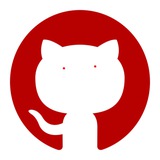CVE-2025-32463.zip
2.9 KB
CVE-2025-32463
Author: r3dBust3r
Sudo before 1.9.17p1 allows local users to obtain root access because /etc/nsswitch.conf from a user-controlled directory is used with the --chroot option.
GitHub Link:
https://github.com/r3dBust3r/CVE-2025-32463
Author: r3dBust3r
Sudo before 1.9.17p1 allows local users to obtain root access because /etc/nsswitch.conf from a user-controlled directory is used with the --chroot option.
GitHub Link:
https://github.com/r3dBust3r/CVE-2025-32463
CVE-2025-32462
Author: harsh1verma
Sudo before 1.9.17p1, when used with a sudoers file that specifies a host that is neither the current host nor ALL, allows listed users to execute commands on unintended machines.
GitHub Link:
https://github.com/harsh1verma/CVE-Analysis
Author: harsh1verma
Sudo before 1.9.17p1, when used with a sudoers file that specifies a host that is neither the current host nor ALL, allows listed users to execute commands on unintended machines.
GitHub Link:
https://github.com/harsh1verma/CVE-Analysis
CVE-2021-41773.zip
3.1 KB
CVE-2021-41773
Author: gunzf0x
A flaw was found in a change made to path normalization in Apache HTTP Server 2.4.49. An attacker could use a path traversal attack to map URLs to files outside the directories configured by Alias-like directives. If files outside of these directories are not protected by the usual default configuration "require all denied", these requests can succeed. If CGI scripts are also enabled for these aliased pathes, this could allow for remote code execution. This issue is known to be exploited in the wild. This issue only affects Apache 2.4.49 and not earlier versions. The fix in Apache HTTP Server 2.4.50 was found to be incomplete, see CVE-2021-42013.
GitHub Link:
https://github.com/gunzf0x/CVE-2021-41773
Author: gunzf0x
A flaw was found in a change made to path normalization in Apache HTTP Server 2.4.49. An attacker could use a path traversal attack to map URLs to files outside the directories configured by Alias-like directives. If files outside of these directories are not protected by the usual default configuration "require all denied", these requests can succeed. If CGI scripts are also enabled for these aliased pathes, this could allow for remote code execution. This issue is known to be exploited in the wild. This issue only affects Apache 2.4.49 and not earlier versions. The fix in Apache HTTP Server 2.4.50 was found to be incomplete, see CVE-2021-42013.
GitHub Link:
https://github.com/gunzf0x/CVE-2021-41773
CVE-2025-29927.zip
2.3 KB
CVE-2025-29927
Author: Bongni
Next.js is a React framework for building full-stack web applications. Starting in version 1.11.4 and prior to versions 12.3.5, 13.5.9, 14.2.25, and 15.2.3, it is possible to bypass authorization checks within a Next.js application, if the authorization check occurs in middleware. If patching to a safe version is infeasible, it is recommend that you prevent external user requests which contain the x-middleware-subrequest header from reaching your Next.js application. This vulnerability is fixed in 12.3.5, 13.5.9, 14.2.25, and 15.2.3.
GitHub Link:
https://github.com/Bongni/CVE-2025-29927
Author: Bongni
Next.js is a React framework for building full-stack web applications. Starting in version 1.11.4 and prior to versions 12.3.5, 13.5.9, 14.2.25, and 15.2.3, it is possible to bypass authorization checks within a Next.js application, if the authorization check occurs in middleware. If patching to a safe version is infeasible, it is recommend that you prevent external user requests which contain the x-middleware-subrequest header from reaching your Next.js application. This vulnerability is fixed in 12.3.5, 13.5.9, 14.2.25, and 15.2.3.
GitHub Link:
https://github.com/Bongni/CVE-2025-29927
